#this is a nature vs nurture situation
Explore tagged Tumblr posts
Text
#some of these words are just so???#''still believes in the system even after getting fucked with no lube by it'' is 100% a metal as hell line#tfa#maccadam#also your tags???#tfa megop is so hilarious when done right#And Optimus manages to beat his aft Several times even if he's just ''maintenance prime''#that's more times than fucking Sentinel has won against a Decepticon#Tfp au Optimus is honestly based a bit on tfa Optimus because i say so#and another fucked up bit is how fast things went downhill after Sentinel became magnus#that boy went full 100 with his paranoia
@transingthoseformers making another post bc i'm about to rant
first of all i'm gald you find my phrasing humorous XDDD life's too short not to enjoy it and since i wouldn't make it in prison unique phrasing will have to do lmao
and TFA megop!!!!! i think it has some of the most written for it but most of it is Not for me ya know? no shade, but Optimus is almost always made into some uwu baby when he's a GREMLIN and would sell Megatron's soul for one corn chip. (also Primus and Unicron apparently don't exist in TFA which has me 👀👀👀 bc that has some interesting connotations)
Optimus manages to make peace with an alien race, keep the Allspark out of Decepticon hands, regularly kicks their asses, while also basically raising an alien child that he got surprise custody of. and that's just season 1. Sentinel had his paranoia fanned and abused by Ultra Magnus, given power he wasn't ready for, and possibly also mind fucked to make him more compliant, bc it was Sentinel's idea to go down on Arachna 9.
both Optimus and Sentinel questioned things, and once Optimus was cut at the knees and thought to be neutered they turned their sights on Sentinel and made him into exactly what they wanted.
then he got a position that he never should have in the first place. bc his paranoia is so severe, imo, he shouldn't be in a position of power like that. he would be GREAT in an advisory setting tho.
and things shouldn't have gone to shit so fast when Sentinel became Magnus unless it was already that bad and his incompetence just brought the curtain down.
#tfa#can i tag this as the tfa au?#transformers#transformers animated#maccadam#tfa optimus#tfa sentinel prime#sentinel is absolutely an asshole and should not be in charge of ANYTHING#but its not entirely his fault#a lot of it is! he's absolutely to blame for a lot of things#but here's the kicker#he's a product of his environment#this is a nature vs nurture situation#and he was fucked over doubly#also my fav dynamic for tfa megop is Megatron getting obsessed over this no name autobot who keeps kicking his ass#and all of his minions are USELESS in finding out information on him#and he can't ask for this bots name#first of all asking people for their names is for plebians#second of all#and this is most important#he cannot admit that he forgot this guy's name#he would die of shame
70 notes
·
View notes
Text
i think one of the reasons i’m so drawn to xue yang (besides Hot. and Vaguely Evil) is that every time i see him i’m staring at an alternate universe wei wuxian. he and wwx are absolutely each other’s ‘what could have been’ and watching them interact is so fascinating
#you can so clearly see how despite beginning in the same situation their paths diverged so early on in life#and then we get into the nurture vs nature debate#i’m willing to argue a bit of both here#wwx is so fundamentally justice oriented and we see what lengths he will go to to defend that#literally with his life#i don’t think you could ever change that but i do think the (limited) care of the jiangs certainly shaped him#xue yang seems so fundamentally drawn to cruelty#but it’s hard to see where the pain of abandonment and thirst for revenge separates from his nature#i think he would have always been interested in cruelty i think that aspect of him cannot be changed#if he just wanted revenge he would have stopped at harming those who abandoned him#yet he continued to extremes and murdered entire clans seemingly for fun#i would argue even if he had a loving upbringing that innate cruelty would have still manifested itself somehow#HOWEVER#xue yang with a loving upbringing is still harmful but certainly not to the extent he is without it#i see that version of him as a more twisted wwx type who is into experimentation but ultimately is drawn back to society by his loved ones#they are so fundamentally opposed in their values#and yet on some level they are both that scared abandoned child#mdzs#the untamed#cql#wei wuxian#wei ying#wwx#xue yang#xy#cql meta#the untamed meta#i love 2 am philosophy
16 notes
·
View notes
Text
this is so anti-southern but i hate when someone tries to tell me who someone else is related to. like, don't spoil it for me. let them tell me on their own time. that should be dlc that i unlock after my first 100hrs, i don't need to know it now.
#excluded from this rule is people who are related to people who've fucked me over real real bad#it is good to know in those situations#but still! it's not so bad when even that comes up organically#my dad and brother both fucking suck and i loove revealing that i'm related to them because people get so shocked and tell me i'm lying lol#nah babe i got that bad blood 😏 them no good genes. nature vs nurture am i right#adam talks too much
3 notes
·
View notes
Text
my favourite part of that rant was when the mask slipped a little much and they said "we do not suddenly morph into misogynists raised with inherit male privilege and conditioning [like you]". i spent way too much focus trying to figure out if inherent or inherited is worse i didnt want to move on lol
#i hate to say it but that specific wording done intentionally#excellently covers for both sex and gender essentialism#a real pick your poison situation#like saying narture instead of nature vs nurture
5 notes
·
View notes
Note
👗
the last time i wore a dress was when i was like, 4-5 years old, at a friends house, like it was just a bit of goofy fun trying them on but then i'd get embarrassed for some reason jumping out to show our parents, like i already knew that dresses just weren't *for me* as a boy. it's kinda weird thinking back on it
#so now i know i'm not transfem but non-binary yeah#honestly i think i probably wouldn't like most dresses. ok i do like maid dresses at least :3c#but it's difficult to say whether this is a nature vs nurture situation y'know?#i just think it's interesting to think back on#askmuck
4 notes
·
View notes
Text
whatever gonna go stand in my living room and stare at the blank wall and contemplate jack kline
#supernatural looked at the nature vs nurture debate and said we haven’t been on the nose enough with this john and mary situation.#let’s create the literal spawn of satan and really emphasize that at the end of the day he’s just happy to be here
2 notes
·
View notes
Text
i know it's been said a gazillion times and said more eloquently than me but god the amount of missed potential in the sequel trilogy. thinking about how anakin became a villain because he felt he had no other choice (and the tragedy being that he always had a choice, and his character arc concluding with him deciding to stand up for what's right by saving luke), meanwhile kylo grew up surrounded by a loving family full of positive role models and chose evil knowingly because he craved power for power's sake. kylo idolizing the tragic figure of darth vader all the while burning the world around him. there was so much you could do with that but instead they had to sacrifice rey's character to make the movies about her fixing the genocidal white boy who never wanted to be saved
#rereading tfa junior novel...#tfa wasn't perfect but it really did set up a lot of interesting stuff! that never got proper attention (if it did at all)!#mitch rambles#sw#sw negativity#and of course the nature vs nurture with kylo vs finn. why the hell did they never get a rematch after tfa. like that would have so good#having finn now on solid footing knowing that this (the fate of the galaxy) is worth fighting for and his now realized self#kicking kylo's pathetic ass into the next galaxy#also why tf did rey get force healing in tros when finn was ren's (characterized by destruction) narrative foil#like i know it's sidelining finn bc racism and making rey super special and powerful in lieu of actual characterization & bc they didn't#actually care about the story they were telling but y'know. 'why' best conveys my bafflement with the thematic flops situation#anyway back to kylo. u could have him tentatively going lightside-ish at the end of the final movie bc star wars redemption themes and all#but you'd have to have him very very very clearly giving up power (or accepting a forced loss of it) for it to work! like themes 101 people#like 'oh i did a bad thing by killing my dad :(' cool but are we gonna address the root cause of why you did that? (or your other crimes)#it's bc he was representative of how morals still had some power over you and u hated that because u need to be stronger than anything else#i don't think any of this ground-shaking breakthroughs like your room full of writers couldn't work out any of that. does nobody know what#a theme is? people were payed big money to make those movies??? (this is not about set/sound/costuming/etc you did great)#*sigh*#store wore posting
4 notes
·
View notes
Text
Writing Tips - Character Tone VS Narrative Tone
Sometimes characters will do things that they believe are good or bad, but the narrative tone tells you otherwise. It can be hard for some people to separate the character’s feelings and actions with what the writer is personally agrees with, so let’s look into how we can make that happen - which also works as a media literacy guide of what to look for when theorising - and only theorising - if a writer does or doesn’t agree with a character;
1. Tonal dissonance. If a character’s mood doesn’t pass the scene’s vibe check, chances are that the character is about to do something the narrative isn’t framing as a good thing. Say Character A is telling Character B a secret they learned from Character C. B’s response might be to be confused or concerned about the situation and ask why A would tell them. Mixing in other bad vibes, such as the weather or setting or lighting of the scene, can additionally make the audience question whether the action was right - and bonus points if they also have the offending character acting poorly in other ways or getting called out for previous wrongdoings in the same scene
2. Karma’s a writer. Actions have consequences both in and out of your story, and using them to reward or punish choices your characters make can indicate whether or not they were the right thing to do. Expand on that through character interactions if you want more nuance
3. Hide away. A character hiding their actions for whatever reason can indicate that, even subconsciously, they’re aware that it wasn’t something others would approve of. Make them sweat, have them struggle to keep it secret. Let it lead to more wrong moves in future to cover up for the original issue, such as one lie covering for another lie. Let it become more trouble than it’s worth until they have to accept that they messed up, even if a bit of stress was the only karma they get for it in the end
4. Pick a theme. Between overarching themes and individual character themes, you can potentially come up with some pretty good long term lessons; if the character acts against the themes and the lesson they’re going to amount to, punish them for straying in a way that’s appropriate and proportional to the act, then work it into some sort of lesson for the character to learn. For example, if the theme is nature vs nurture and you want the lesson to be being true to yourself rather than what others make you into, a character acting on nurtured traits rather than natural traits might be punished through pressures to conform and the act getting amped up as further conflicts between the two sides of themselves present
5. Recruit a mouthpiece. Which character would be the most likely to call out the offending party’s BS? See if you can come to a scenario where they’d do so - albeit making sure it all stays natural and in-character. Maybe they go about it in a way that doesn’t even hit the mark, but at least it’s been said so your audience has had it addressed. Remember; don’t just insert X random character and have them be uncharacteristically analytical, have it be someone who would already do that and word it in a way that fits their character voice. Above all the interaction needs to feel natural rather than forced
#narrative#narrative tone#character tone#writing morals#writing#writers#writeblr#bookblr#book#writers on tumblr#writerscommunity#writers of tumblr#writer#creative writing#writing tips and tricks#writing is hard#writing advice#writing tricks#writing tips
658 notes
·
View notes
Text
You know, genuinely, the transmigration setting of svsss fascinates me. Shen Yuan adapts remarkably quickly (makes you want to explore exactly how attached he felt to his home in the first place? An interesting thought for another time.) but I have to wonder, how does his past shape his psyche?
I'm sure most people are familiar with nature vs nurture, and that the situation you were raised in shapes you fundamentally as a person (It doesn't define you though.) . Moreso, the culture you were raised in, and participated in, contributed to and perpetuated.
I think it can be easily argued that the world of 'PIDW' moves differently to Shen Yuan's modern day China. I think there is some bleed-through or carry-over, but the cultures are different. (Perhaps with Modern Day as the 'mother culture' to PIDW, seeing as Shang Qinghua may or mayn't be the creator of said world.)
If you take the same culture at different points in time even, the cultural mindset and cultural awareness ( I like to think of it like a portfolio lol), there will be a marked difference. You just have to wonder the difference of perspectives, not even from a character point of view, but culturally.
And! You have to marvel at the fact that Shen Yuan adapted as well as he did! He was speedrunning integrating into a new culture! I mean sure, he had foreknowledge of the world, but knowledge of, say a different country is not the same as learning to truly live there.
I can have knowledge of a foreign country, know it's stories and songs, it's celebrities, traditions and way of governance: the climate, the flowers and the pathways of its waters.
Yet, that would not make integrating into the culture any less eye-opening and educational. It would not make me any less of a student to that culture I'm learning.
This isn't even bringing up that there are multiple cultures in Shen Yuan's PIDW.
I won't argue that Shen Yuan could navigate all these cultures well or easily, but that he did at all is fascinating. Shang Qinghua does have a few legs up, being the author and getting a PIDW childhood.
Shen Yuan's different cultural perspective, I would like to posit, is another reason the Cang Qiong Peak Lords got suspicious. The difference in personality could only be highlighted by Shen Yuan's different cultural foundation. He's operating from an absolutely different place than Shen Jiu!
Anyway, this contrast and concept, this facet of svsss delights me and I enjoy rotating it in my mind.
It seems that this just turned into a SY appreciation post. But what can I say? The funky dude deserves it.
#and all the praise to mxtx#svsss#svsss meta#shen yuan#shen jiu#proud immortal demon way#pidw#shen qingqiu#shen qingqius#cang qiong peaks#cang qiong mountain sect peak lords
326 notes
·
View notes
Text
your core identity: sun / moon midpoints
the sun/moon midpoint in astrology is a significant point that represents the synthesis of a person’s core identity (sun) and emotional needs (moon). it is often considered a "balance point" between the masculine (sun) and feminine (moon) energies within an individual, capturing both their conscious goals and subconscious desires.
about sun / moon midpoint: inner harmony, balance of self, self-acceptance, true self-expression, fulfillment, emotional well-being, comfort, inner peace, attraction, partnership potential, connection needs, compatibility, intimacy, goals, personal destiny, soul mission, inner motivations, growth, maturity, self-awareness, emotional intelligence, artistic talents, creative drive, manifestation of desires, self-expression through art or work, how the world perceives you vs. how you feel inside, authentic self vs. social mask, yin/yang integration, masculine & feminine balance, conscious/unconscious integration, how you give & receive love, ideal relationship style, romantic needs, personal growth journey, inner conflicts, reconciling desires with duties,
aries sun/moon midpoint
with an aries sun/moon midpoint, personal development is driven by a need for independence, action, and self-assertion. this placement suggests that the person finds their greatest fulfillment through experiences that allow them to be bold, take risks, and carve their own path. their growth is tied to a strong sense of self-discovery and a desire to lead or initiate new endeavors. the aries energy pushes them to confront challenges head-on, often embracing change and competition as a way to sharpen their skills and build confidence. they are likely to develop a dynamic personality that thrives in environments where they can assert their individuality and pursue their passions fearlessly. this placement indicates a person who learns and grows by taking the initiative and asserting their will, often feeling most alive when they are actively pursuing new goals or adventures.
taurus sun/moon midpoint
with a taurus sun/moon midpoint, personal development is deeply connected to stability, comfort, and a sense of security. this placement suggests that the person finds growth through experiences that ground them, provide material or emotional security, and allow them to build something lasting. their path to self-awareness is often slow and steady, valuing consistency and patience in their pursuits. they tend to develop a strong appreciation for the physical and sensory aspects of life, finding pleasure in beauty, nature, and the finer things that bring comfort and pleasure. this midpoint reflects a person who learns and evolves by creating a solid foundation for themselves, cultivating inner peace, and developing resilience. they grow best in environments where they can nurture their senses, build strong relationships, and develop practical skills that enhance their self-sufficiency and personal worth.
gemini sun/moon midpoint
with a gemini sun/moon midpoint, personal development is fueled by curiosity, communication, and the desire for intellectual stimulation. this placement suggests that the person grows by engaging with a wide range of ideas, exploring different perspectives, and sharing their thoughts with others. their path to self-awareness is shaped by a love for learning, social interaction, and constant mental activity. they thrive in dynamic environments where they can exchange information, connect with diverse people, and adapt to new situations. this midpoint indicates someone who evolves through the flexibility of mind, finding fulfillment in diverse experiences and staying open to new possibilities. they develop best when they embrace their dual nature, balancing both their logical and creative sides, and allowing themselves the freedom to explore various interests and express themselves in multiple ways.
cancer sun/moon midpoint
with a cancer sun/moon midpoint, personal development is deeply intertwined with emotional connection, nurturing, and the search for security. this placement suggests that the person grows through experiences that foster a sense of belonging, care, and emotional understanding. their journey toward self-awareness involves cultivating empathy, honoring their feelings, and creating environments where they feel safe and supported. they are often drawn to roles where they can care for others or be a source of emotional comfort, finding fulfillment in close, meaningful relationships and family connections. this midpoint reflects a person who learns and evolves by connecting to their emotional core, embracing their sensitivity, and understanding their own needs for security and comfort. they grow best in settings that allow them to express their nurturing side, build deep bonds, and create a stable foundation for themselves and those they love.
leo sun/moon midpoint
with a leo sun/moon midpoint, personal development is driven by the need for self-expression, recognition, and creative fulfillment. this placement suggests that the person thrives when they can shine brightly, celebrate their individuality, and share their unique gifts with the world. their path to self-awareness is centered on building confidence, embracing their natural charisma, and finding ways to lead or inspire others. they are drawn to situations where they can feel appreciated and admired, often seeking roles or activities that allow them to stand out and be celebrated for their talents. this midpoint indicates someone who grows by embracing their inner light, taking pride in their achievements, and cultivating a sense of purpose through creative and heartfelt endeavors. they develop best in environments where they are free to express their passions, assert their personal identity, and feel the warmth of genuine connection and admiration from others.
virgo sun/moon midpoint
with a virgo sun/moon midpoint, personal development is centered around self-improvement, practicality, and a commitment to service. this placement suggests that the person grows by refining their skills, attending to details, and finding meaningful ways to be of help to others. their journey toward self-awareness involves cultivating a sense of order, discipline, and responsibility, as well as finding balance in their daily routines. they often find fulfillment through problem-solving, analyzing situations, and contributing to the well-being of those around them in practical, tangible ways. this midpoint indicates someone who evolves by embracing their analytical nature and striving for perfection in their endeavors. they develop best in environments that encourage precision, efficiency, and thoughtful consideration, where they can use their keen eye for detail and strong sense of duty to make a positive impact.
libra sun/moon midpoint
with a libra sun/moon midpoint, personal development revolves around finding balance, harmony, and meaningful connections with others. this placement suggests that the person grows through relationships, collaboration, and understanding different perspectives. their path to self-awareness involves learning to navigate social dynamics, cultivating diplomacy, and fostering fairness and justice in their interactions. they find fulfillment in situations that allow them to create beauty, peace, and equilibrium, whether in their personal life, work, or creative pursuits. this midpoint reflects someone who evolves by embracing their desire for partnership and mutual support. they develop best in environments where they can engage with others, practice cooperation, and express their innate sense of grace and tact. finding a balance between their needs and those of others is key to their growth, allowing them to build a life filled with love, understanding, and harmony.
scorpio sun/moon midpoint
with a scorpio sun/moon midpoint, personal development is driven by a need for depth, transformation, and emotional intensity. this placement suggests that the person grows through profound experiences that challenge them to confront their inner depths, embrace change, and uncover hidden truths. their path to self-awareness involves exploring their passions, facing their fears, and navigating the complexities of their emotional landscape. they are drawn to situations that demand resilience, courage, and a willingness to delve beneath the surface of life, often finding fulfillment in moments of deep connection and personal transformation. this midpoint reflects someone who evolves by embracing their inner strength, seeking out meaningful and transformative experiences, and understanding the power of their emotions. they develop best in environments that allow them to express their intensity, explore their psychological depths, and engage in activities that foster personal growth and renewal.
sagittarius sun/moon midpoint
with a sagittarius sun/moon midpoint, personal development is fueled by a quest for adventure, knowledge, and freedom. this placement suggests that the person grows through experiences that expand their horizons, challenge their beliefs, and inspire their sense of exploration. their path to self-awareness involves embracing opportunities for travel, learning, and philosophical inquiry, as well as seeking out new experiences that broaden their perspective. they find fulfillment in environments that encourage curiosity, optimism, and the pursuit of their higher ideals. this midpoint reflects someone who evolves by following their passions, embracing change, and remaining open to the world’s vast possibilities. they develop best in settings that support their adventurous spirit, provide intellectual stimulation, and allow them to freely explore their interests and aspirations. the journey involves balancing their desire for freedom with their need for meaningful connections and personal growth.
capricorn sun/moon midpoint
with a capricorn sun/moon midpoint, personal development is centered around ambition, structure, and achieving long-term goals. this placement suggests that the person grows through disciplined efforts, taking on responsibilities, and building a solid foundation for their future. their path to self-awareness involves developing a strong sense of duty, working diligently toward their objectives, and cultivating resilience in the face of challenges. they find fulfillment in roles that allow them to demonstrate their competence, make tangible progress, and contribute to their personal and professional success. this midpoint reflects someone who evolves by embracing their drive for achievement, maintaining focus on their ambitions, and navigating their emotional landscape with a pragmatic approach. they develop best in environments that offer opportunities for leadership, provide clear goals, and support their efforts to create a lasting impact. balancing their need for stability with their emotional needs is key to their growth, allowing them to build a life characterized by both personal accomplishment and emotional security.
aquarius sun/moon midpoint
with an aquarius sun/moon midpoint, personal development is driven by a desire for innovation, individuality, and social progress. this placement suggests that the person grows through experiences that challenge conventional thinking, foster creative expression, and encourage unique contributions to the collective. their path to self-awareness involves embracing their individuality, exploring unconventional ideas, and engaging in activities that promote change and reform. they find fulfillment in environments that support their intellectual curiosity, allow for unconventional thinking, and provide opportunities to connect with like-minded individuals. this midpoint reflects someone who evolves by embracing their role as a visionary, seeking out ways to make a difference in the world, and expressing their authentic self. they develop best in settings that encourage freedom of thought, support their innovative ideas, and allow them to be part of communities that value diversity and progress. balancing their need for personal uniqueness with their desire to contribute to the greater good is key to their growth, enabling them to build a life that aligns with their ideals and aspirations.
pisces sun/moon midpoint
with a pisces sun/moon midpoint, personal development is deeply intertwined with intuition, compassion, and a quest for spiritual understanding. this placement suggests that the person grows through experiences that foster empathy, creativity, and a connection to their inner self. their path to self-awareness involves embracing their sensitivity, exploring their dreams and ideals, and finding meaning in their emotional and spiritual experiences. they find fulfillment in environments that support their imaginative nature, offer opportunities for healing, and allow them to connect with something greater than themselves. this midpoint reflects someone who evolves by embracing their emotional depth, nurturing their creative talents, and seeking spiritual growth. they develop best in settings that encourage introspection, provide emotional support, and allow them to express their dreams and ideals. balancing their need for solitude with their desire for connection and compassion is key to their growth, enabling them to create a life rich with purpose, understanding, and emotional fulfillment.
in the houses:
sun/moon midpoint in 1st house: self-awareness, personal authenticity, emotional confidence, self-expression, assertiveness, independence, charisma, emotional strength, presence, personal fulfillment, directness, self-assurance, balance between ego & emotions, initiative in relationships, inner & outer harmony, creative self-assertion, public emotional expression, self-discovery, emotional identity evolution, leadership in relationships, heroic self-discovery, the reluctant hero, character development arc, the chosen one, identity crisis, public persona vs. private self, the leader, emotional growth, dynamic character, self-actualization, personal branding, daily routines, self-help books, therapy sessions, social media profiles, personal journals, fitness goals, public speaking events, career planning, creative hobbies
sun/moon midpoint in 2nd house: self-worth, material security, emotional stability, value systems, financial independence, resourcefulness, emotional investment, personal values, tangible goals, emotional ownership, possessiveness, building stability, self-sufficiency, emotional fulfillment through possessions, inner security, satisfaction in comfort, emotional attachment to wealth, nurturing resources, grounded self-expression, emotional connection to personal belongings, the wealthy, money for nothing, the material girl, power of love, the self-made man/woman, emotional baggage, comfort zone, personal growth journey, the insecure wealthy, the self-sufficient, budgeting, investment planning, personal savings accounts, home decor, collecting hobbies, self-care routines, material possessions, career goals, financial planning, personal values statements,
sun/moon midpoint in 3rd house: communication, curiosity, intellectual connection, social interaction, emotional expression through words, mental stimulation, self-awareness through learning, verbal self-expression, emotional adaptability, engaging in dialogue, open-mindedness, active listening, thoughtful relationships, expressive creativity, emotional intelligence, quick-wittedness, networking, exchanging ideas, sociability, mental & emotional alignment, the brainy one, the thinker, verbal tic, the mentor, communication breakdown, the gossiper, the strategist, the spock, the media mogul, character development through dialogue, daily conversations, writing, public speaking, social media interactions, networking events, learning new skills, local community groups, personal journaling, educational courses, social hobbies,
sun/moon midpoint in 4th house: emotional security, home life, family roots, inner foundation, nurturing self, domestic harmony, private identity, emotional fulfillment through family, heritage, comfort zone, self-nurturing, emotional intimacy, ancestral connections, psychological foundation, caring relationships, creating a safe space, internal stability, home-centered creativity, inner life balance, emotional depth in personal life, the family man/woman, home is where the heart is, the nurturer, the secret keeper, the protector, emotional baggage, the domestic goddess, the emotional anchor, family ties, the homestead, family gatherings, home improvement projects, emotional support systems, family traditions, home cooking, personal space design, parenting responsibilities, private retreats, home-based hobbies, emotional journaling,
sun/moon midpoint in 5th house: creative self-expression, passion, romantic love, joyfulness, personal creativity, playfulness, emotional excitement, self-discovery through fun, spontaneity, emotional fulfillment through love, artistic expression, romantic connections, childlike wonder, dramatic self-expression, entertainment, personal pleasure, hobbies & passions, emotional self-confidence, self-love, heartfelt experiences, the prodigy, the star, the flirt, the artist, the dreamer, love triangle, the performer, the entertainer, playful trickster, romantic hero, creative projects, romantic dates, personal hobbies, artistic pursuits, social gatherings, theater or dance classes, self-expression through fashion, event planning, sporting activities, celebratory events,
sun/moon midpoint in 6th house: service, routine, health & wellness, work ethic, self-improvement, emotional balance through discipline, daily responsibilities, practical self-expression, helping others, emotional fulfillment through work, efficiency, attention to detail, healing, organized lifestyle, self-care, productivity, emotional health, practical love, dedication, balance between work & self, the perfectionist, the workaholic, the caregiver, the taskmaster, routine maintenance, the healer, the analyst, the organizer, the unsung hero, the method actor, daily routines, health regimens, work schedules, to-do lists, volunteering, meal planning, fitness programs, professional development, household chores, time management,
sun/moon midpoint in 7th house: partnership, harmony, emotional balance through relationships, mutual understanding, commitment, collaboration, compromise, shared emotional needs, relationship fulfillment, personal growth through others, marriage, equality, diplomacy, emotional exchange, union, interpersonal dynamics, emotional security in partnerships, social connection, balancing self & others, emotional integration through love, the idealist, the partner in crime, the perfect match, the negotiator, the romantic, the complement, the life coach, the trusty sidekick, the matchmaker, the diplomat, relationship counseling, partnership agreements, marriage planning, collaborative projects, conflict resolution, joint ventures, social gatherings with partners, personal growth workshops, date nights, public appearances with significant others,
sun/moon midpoint in 8th house: transformation, emotional depth, intimacy, power dynamics, rebirth, shared resources, emotional vulnerability, psychological insight, healing, emotional intensity, secrets, trust, deep emotional bonds, mystery, fearlessness in relationships, personal evolution, taboos, emotional power struggles, emotional merging, crisis management, the dark side, the survivor, the undercover agent, the manipulator, the reformed criminal, emotional transformation, the secret keeper, the alchemist, the mysterious stranger, the phoenix, deep therapy sessions, financial planning, intimate conversations, crisis management, personal transformation projects, secretive work or research, joint financial ventures, exploring hidden talents, healing practices, investments & inheritance planning,
sun/moon midpoint in 9th house: expansion, adventure, philosophy, higher learning, spiritual growth, exploration, freedom, broadening horizons, cultural experiences, emotional fulfillment through knowledge, global perspective, belief systems, personal truth, growth through travel, emotional wisdom, faith, curiosity about life, visionary thinking, emotional connection to ideals, life’s purpose through exploration, the Seeker, the world traveler, the sage, the visionary, the adventurer, the guru, the idealist, the scholar, the cultural ambassador, the missionary, travel planning, higher education, philosophical debates, cultural experiences, spiritual practices, personal development courses, writing & publishing, exploring new beliefs, teaching & mentoring, long-term goals & aspirations,
sun/moon midpoint in 10th house: career, public image, ambition, life goals, achievement, authority, reputation, professional growth, public recognition, emotional fulfillment through success, leadership, status, self-discipline, career aspirations, legacy, personal responsibility, impact on society, goal-oriented emotional needs, self-expression in the public eye, identity through career, the ambitious leader, the public figure, the overachiever, the icon, the careerist, the visionary, the authority, the success story, the power player, the self-made person, career advancement, public speaking engagements, professional networking, goal setting, work-life balance, leadership roles, personal branding, performance reviews, strategic planning, public appearances,
sun/moon midpoint in 11th house: community, friendship, social causes, group dynamics, innovation, aspirations, collective goals, emotional fulfillment through networks, humanitarian efforts, collaborative projects, shared ideals, visionary thinking, emotional connection to groups, personal development through social interactions, future-oriented goals, social identity, creative collaboration, community engagement, emotional satisfaction through social contributions, identity through group affiliations, the visionary leader, the social butterfly, the idealist, the innovator, the networker, the rebel, the humanitarian, the supportive friend, the trendsetter, the connector, social networks, community involvement, group projects, future planning, collaborative hobbies, friendship circles, volunteer work, aspiration setting, creative collaborations, public advocacy,
sun/moon midpoint in 12th house: introspection, spirituality, isolation, inner life, subconscious mind, self-reflection, emotional healing, compassion, hidden strengths, psychological insight, private growth, mysticism, soul purpose, emotional release, self-understanding, meditation, creative imagination, personal retreat, secret desires, identity through inner exploration, the recluse, the enigma, the mystic, the underdog, the visionary dreamer, the healer, the secret hero, the survivor, the shy guy/gal, the spiritual guide, meditation practices, personal retreats, therapeutic work, spiritual exploration, journaling, creative solitude, private reflection, volunteering in hidden ways, counseling sessions, philanthropic efforts,
all observations are done by me !!! @pearlprincess02
#sun/moon midpoint#midpoint#astrology midpoint#astrology#astro notes#astro observations#astro community#astrology observations#astro tumblr#astrology notes#astroblr#astro placements#zodiac#zodiac signs
154 notes
·
View notes
Text

[HOUSE OF THE DRAGON / FIRE AND BLOOD SPOILERS]
[Picture and text by my friend, though I share their vision and wish GRRM hadn't disposed of Aegon II so quickly. So much potential!]
“My soul is too much charged with blood of thine already.”
An AU in which Aegon II adopts Rhaenyra’s son, Aegon III, as his own heir, only that instead of dying, he lives for a while longer, slowly shaping Aegon III in his own image.
This is a nature vs. nurture type of a situation: a son of Daemon and Rhaenyra, Aegon III becomes a product of Aegon II and his family in every way but by his birth. I would want their relationship to be strained, deep and vile, a tortured drama in the style of The Lion in Winter. “You love nothing. You are incomplete. The human parts of you are missing. You are dead as you are deadly,” type of a parent-child dynamic, full of rage, misery and longing, with both performing the role of a surrogate for the true loved one that their faction has killed. One becomes the son to his worst nightmare, and the other—a de facto father to the blood of his real son’s killers, to his own blood, too, because ultimately, they do share the same blood, like poison poured from the same cup.
Fun detail, but though the “you love nothing” line comes from Richard in The Lion in Winter, it’s his father Henry II who could serve as a prototype to Aegon III. The son of Matilda (Rhaenyra), he was proclaimed heir by king Stephen (Aegon II) shortly before his death, putting an end to the Anarchy. Stephen, however, did live a fairly long life. In this AU so does Aegon II, purely out of stubbornness and spite.
The quote comes from Macbeth.
#house of the dragon#fire and blood#aegon ii targaryen#aegon iii targaryen#house of the dragon spoilers#hotd spoilers#fire and blood spoilers#f&b spoilers#[placeholder tag for my friend's art]#until I come up with a phrasing that suits them entirely
206 notes
·
View notes
Text
also ALSO-
I know the old "AFTG is badly written" jokes but hold the FUCK on for one goddamn second
I have been writing for almost 20 years. I got my college degree in English and the only reason my specialization wasn't creative writing is because I had bad time management skills and missed my chance to do my final creative writing workshop. I'm autistic and Storycrafting and Wordsmithing are my special interests. I understand writing pretty well.
AFTG opened my fucking eyes to a blind spot of the utter craftsmanship of writing sticky characters that infect you with brain worms, and here it is:
The Conflict of Material and Form
AKA the Character Creation version of Nature versus Nurture
"This isn't who I truly am. This is who I've had to become, what I've had to fashion myself into to survive. The original me is buried in there somewhere, if only you knew how to look. If only you knew to look beyond the mask."
Easily exemplified with our fave lil guys-
Neil Abram Josten:
Material: smartass with a smart mouth, attitude problem, cares about people deeply, sharp tongue to cut a bitch with, kinda feral, a lil unhinged, oblivious idiot
Form: quiet and hidden, liar liar pants of fire, run rabbit run, docile and tame, hyper-vigilant and hyper-observant
Andrew Joseph Minyard:
Material: caring, protective, strong sense of justice, gentle even, cares deeply, give me sugar or give me death, yearning
Form: cold, apathetic, ruthless and unforgiving, allow me to introduce you to my knife, regret? don't know her, i want nothing nothing nothing
Why am I using 'material and form' instead of 'nature and nurture'? Because I am a subscriber to "Characters are not meant to be real people; they are mirages of real people meant to encapsulate a function or idea that serves the story". But use whatever terms click with your noggin.
This isn't about 'want vs need'. This isn't about 'lie believed and truth learned'. This is about Presentation and Basic Action - how would this character react here? Which part are they reacting from?
With Material vs. Form, one isn't the 'true' version and the other the 'false' version of the character. They are both true and real in their own right. The Secret Sauce is that the Material and the Form fight 1v1! And regardless of which part wins, there will be consequences and rewards; so which rewards do we want and which consequences are we willing to suffer? And this fight happens beat by beat, scene by scene, plot point by plot point.
At one point in TFC Neil laments his inability to shut his fucking mouth because his Form of 'don't stand out dipshit' and his Material of 'initiate smartass.exe' are disagreeing with how to respond to his circumstances! It's that fucking meme "My healed and unhealed versions of myself deciding who is going to handle this situation" but as Storycraft!
Now, I don't think this is a new idea by any means. But sometimes to make the essence of an idea truly stick, it must be presented in multiple different ways until one triggers a "Eureka! By Jove! Aha!", and this was the way that truly made this concept stick for me. And why did it stick? Because AFTG is a labor of deep love and passion for Characters and all their complexity and inner machinations, and that depth of devotion had to manifest as some good ass writing somehow my homies in christ.
I have a collection of my favorite Storycrafting Wisdoms and one of them is effectively:
"Put Compelling Characters into a Compelling Situation and see what happens."
And Nora does Compelling Characters beautifully
371 notes
·
View notes
Text
i know millipedes have become the more "socially acceptable" myriapod but the pitting of millipedes against centipedes i see all the time is SOOOOOOOOOOOOOOOOOOO. ueughhgh. i adore millipedes, i think they're neat little guys, but millipedes are hardly comparable to centipedes and it's unfair to lump them together as the "good animal" vs the "evil animal." i see countless comments online saying how ugly, disgusting, creepy, and evil centipedes are.
so, centipede propaganda:
anecdotal evidence suggests they have good memory capacity, able to remember escape routes and the location of prey. cool
they can learn to tolerate handling by humans and some appear to enjoy being petted by humans. obviously we can't ask them if they like it but if a lightning-fast worm made of knives doesn't like something it's going to tell you. a centipede just won't allow itself to be in a situation it doesn't want to be in. but obvs disclaimer: don't handle a centipede without experience and handle at your own risk. research bite reports. etc. be sensible, bites can be serious
each pede has its own temperament. some are comparatively chill and lazy, earning them the nicknames "lazipedes" while others are reactive and defensive.
they feel safest under rocks and leaves (in their banky…) if mine are stressed sometimes i just plop a leaf over their head and they settle down instantly
not all of them JUST eat other animals. some dabble in fruits too! the fruit enjoyers .
they spend a lot of time grooming their antennae. you think that sleek aesthetic maintains itself? their relaxed side esp when grooming is fascinating to see. the creature you likely only see darting away from you at 1000mph is also capable of Chilling the fuck out.
they have terrible eyesight. imagine a centipede with tiny little glasses. don't you feel better now? anyway the fact that they don't see well is part of why they sometimes react so viscerally to things. you probably would too if you were small and preyed on by big things.
centipede mothers fiercely protect, groom, and nurture their babies. they do so for longer than they "need" to in some cases. in a study a variety of pede species were found sharing nest sites in forest canopies, demonstrating a lack of negative spatial associations. this was unusual because we typically expect these guys to not be keen on sharing.
not all bites are due to "aggression" but more from using their fangs in an exploratory nature. think of them as kids but instead of hands they have fangs. it's slippery on you so i'll grab on gently with my venomous fangs. i don't know what you are yet so i'm gonna reach out and test the Texture. you smell salty, i'm gonna lick you. etc.
they are ouppies.
even if you think they're ugly they come in so many colours so there's gonna be one that suits ur taste. there's baja blast blue. ridiculously bright red. piss yellow. candy corn black & orange. if you can think of a colour combo there's probably one out there.
anyway. our empathy for animals shouldn't only extend to those we find socially acceptable or easy enough to anthropomorphize
152 notes
·
View notes
Text
I’d like to know what other people’s opinions are on how/why Knives became so fixated on his brother, specifically in the manga. In the anime they show that vash and knives were both abused verbally and physically by a crew member on their ship. It’s easy to see how Knives would have became protective of Vash afterwords and that protectiveness becoming distorted and corrupted. However this is not something that happens in the manga. I guess it’s a nature vs nurture situation. Thoughts?

#trigun 98#trigun manga#trigun#trimax#vash#trigun maximum#tristamp#vash the stampede#millions knives
182 notes
·
View notes
Text
Cult Classics vs Astro Notes
Which Cult Classic film would you be, based on your sign? You can look to your big 3, in terms of moon sign being your emotional state, rising would be the film you're perceived as, and sun would be most relateable... this is meant to be fun, so ENJOY <33
Aries - "Fight Club" (1999): An intense, adrenaline-fueled journey of self-discovery and rebellion against societal norms.
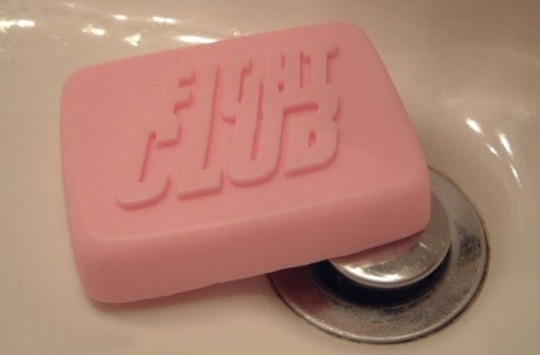
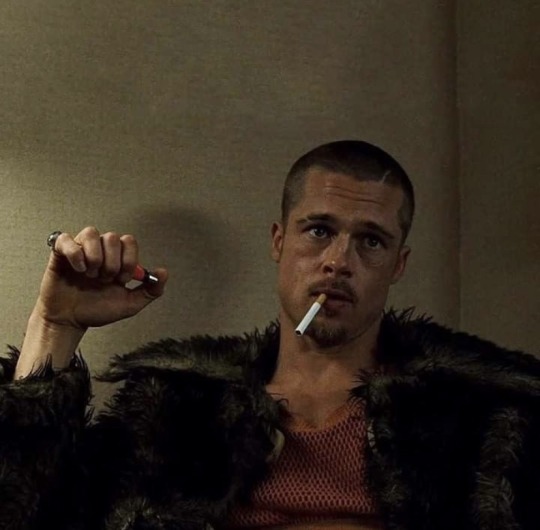
Taurus - "Willy Wonka & the Chocolate Factory" (1971): A story that indulges in the senses and teaches the value of practicality and appreciation.
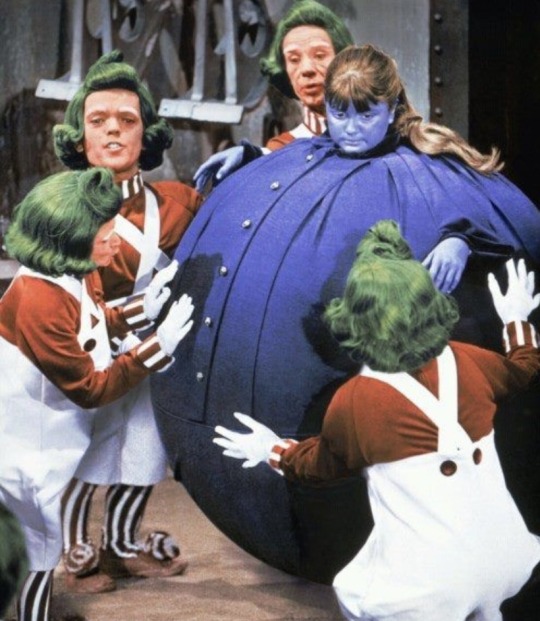
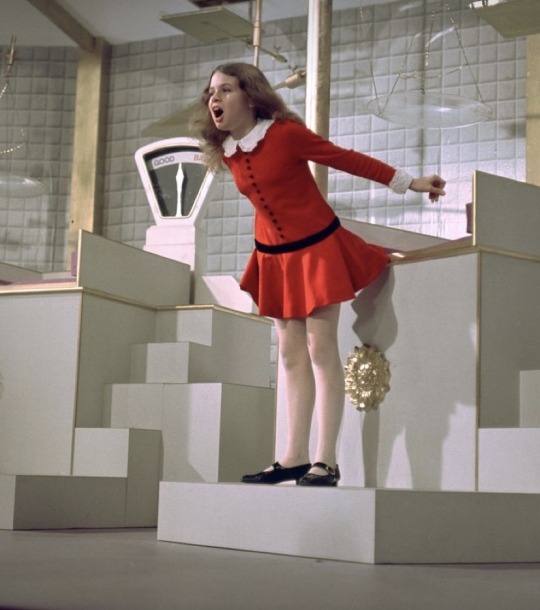
Gemini - "Pulp Fiction" (1994): A fast-paced, witty, and multi-faceted narrative with clever dialogue and unexpected twists.
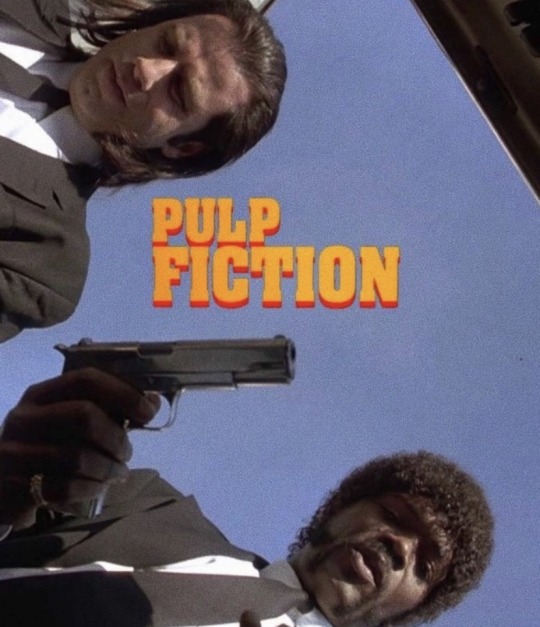
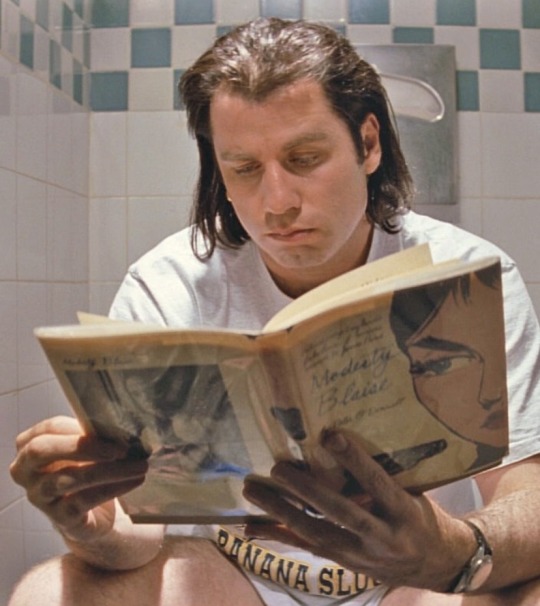
Cancer - "The Breakfast Club" (1985): An emotional exploration of the complexities of relationships and the importance of understanding and empathy.
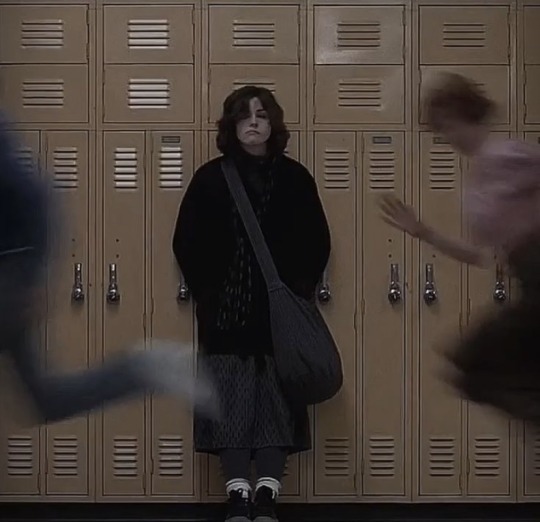
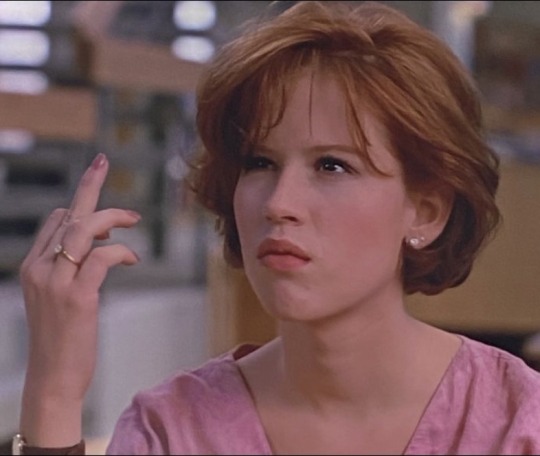
Leo - "Moulin Rouge!" (2001): A passionate, dramatic, and visually stunning tale of love, creativity, and self-expression.
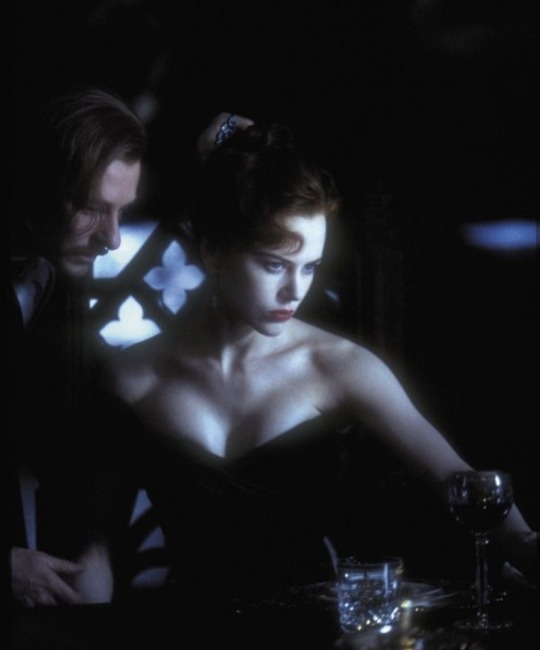
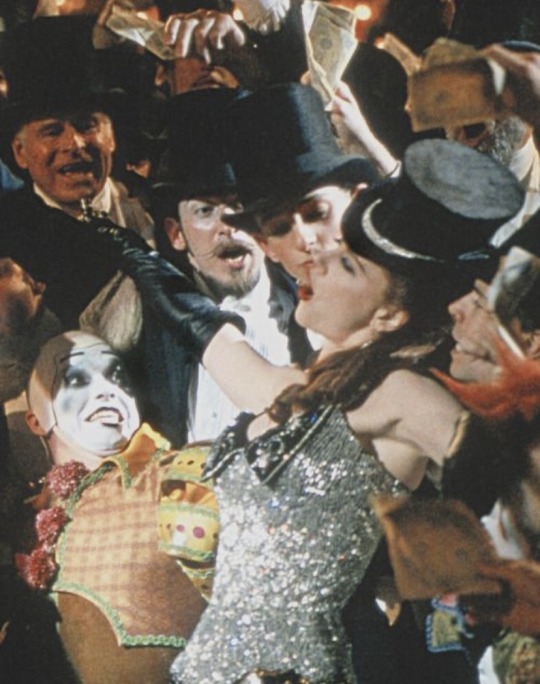
Virgo - "Inception" (2010): An intricate, layered puzzle that requires precision, analysis, and problem-solving skills to navigate.

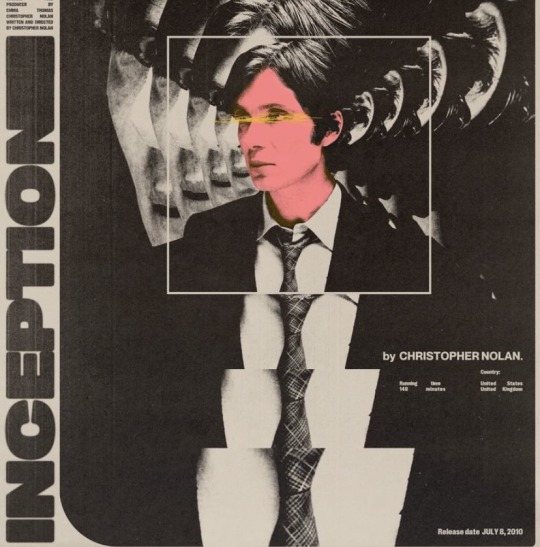
Libra - "The Royal Tenenbaums" (2001): A quirky, aesthetically pleasing story that explores the dynamics of relationships and the pursuit of harmony and balance.

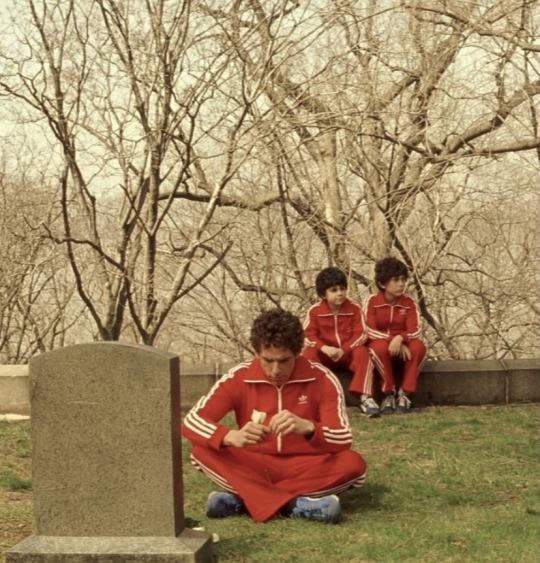
Scorpio - "Donnie Darko" (2001): A dark, mysterious, and psychologically intense journey that delves into the depths of the human psyche.
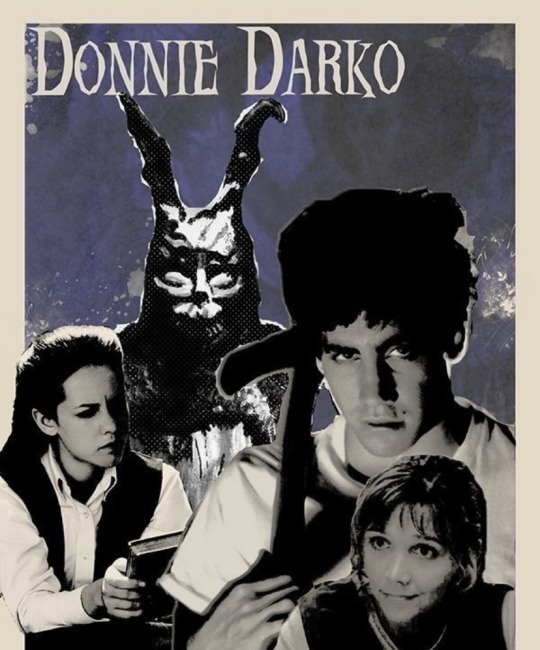
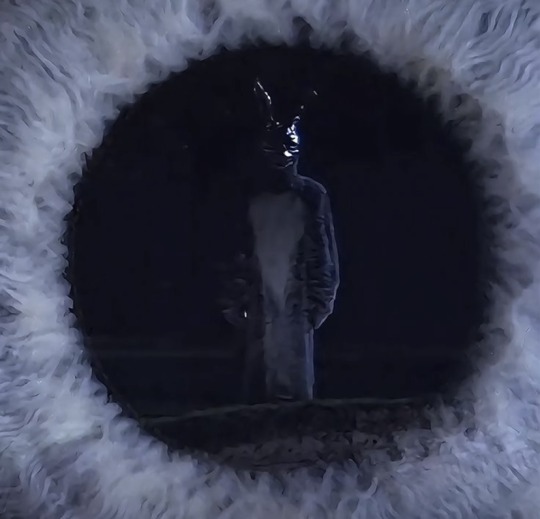
Sagittarius - "Into the Wild" (2007): An adventurous, philosophical quest for meaning, truth, and freedom beyond societal constraints.

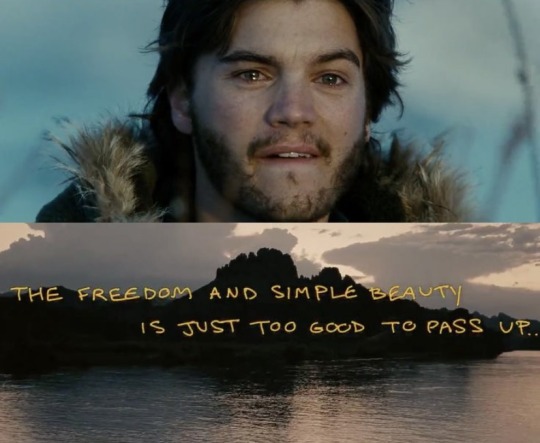
Capricorn - "The Godfather" (1972): A powerful, ambitious, and strategic narrative that explores themes of loyalty, tradition, and the pursuit of success.
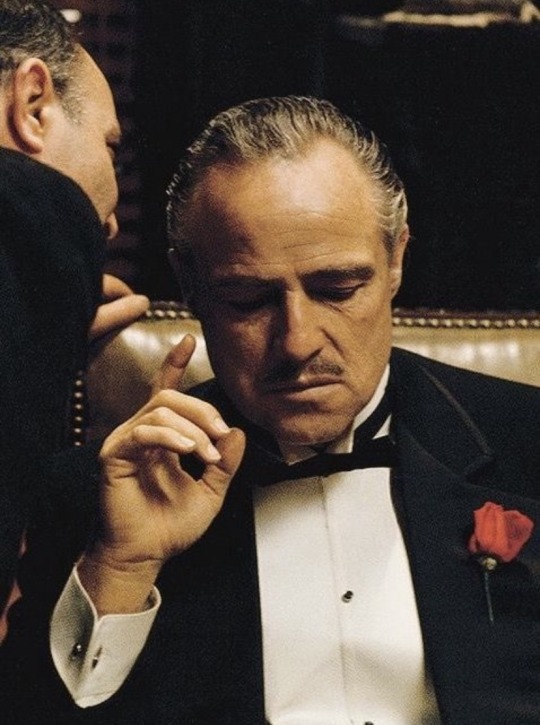
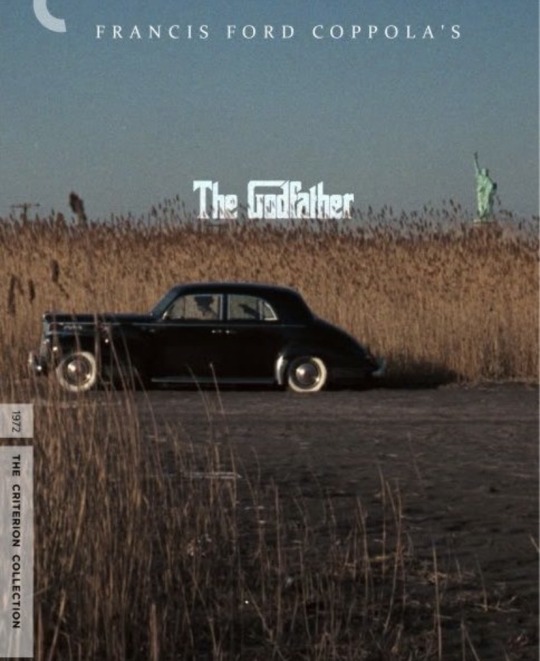
Aquarius - "The Matrix" (1999): A revolutionary, mind-bending story that questions reality and champions individuality and innovation.
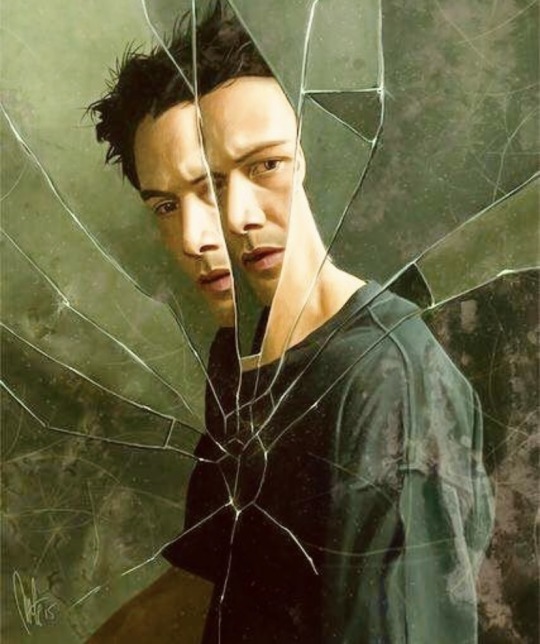
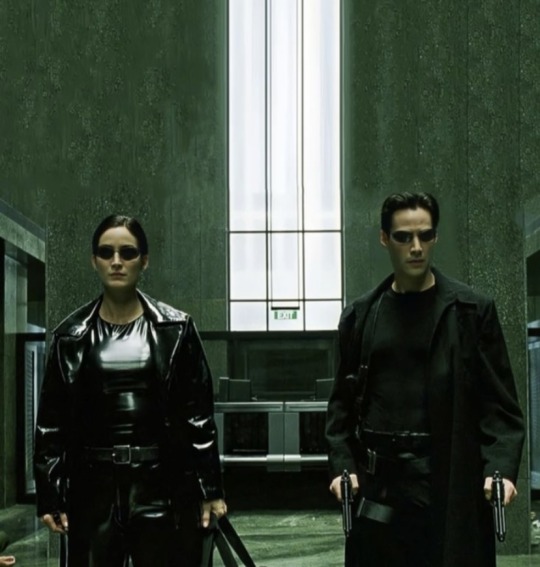
Pisces - "Eternal Sunshine of the Spotless Mind" (2004): A surreal, emotionally profound exploration of love, memories, and the blurring of fantasy and reality.
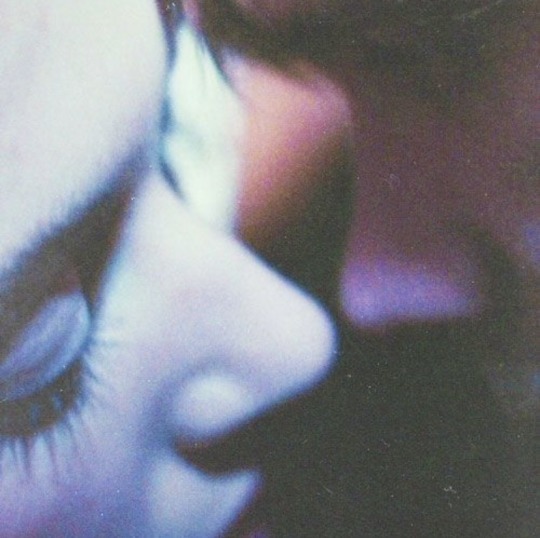

These pairings are based on the general characteristics and themes associated with each zodiac sign, and how they align with the central ideas, motifs, and tones of the respective cult classic films.
ADDITIONAL... :)
CULT CLASSIC CHARACTERS: GENDER IS INTERCHANGABLE, it's the energy.
Aries - John Bender (The Breakfast Club): Bender embodies the rebellious, independent spirit of Aries. He challenges authority figures and social norms, refusing to conform to the expectations placed upon him.
Taurus - The Dude (The Big Lebowski): The Dude's laid-back, pleasure-seeking lifestyle and his appreciation for the simple things in life align with the Taurus vibe.
Gemini - Ferris Bueller (Ferris Bueller's Day Off): Ferris's quick wit, adaptability, and ability to talk his way out of any situation are classic Gemini traits.
Cancer - Amélie Poulain (Amélie): Amélie's emotional depth, creativity, and desire to help others from behind the scenes reflect the nurturing, imaginative nature of Cancer.
Leo - Margo Channing (All About Eve): Margo's dramatic flair, confidence, and commanding presence on stage and in life embody the Leo spirit.
Virgo - Clarice Starling (The Silence of the Lambs): Clarice's intelligence, attention to detail, and dedication to her work as an FBI agent reflect Virgo's analytical and perfectionistic nature.
Libra - Cher Horowitz (Clueless): Cher's charm, social graces, and desire to create harmony and balance in her world align with the Libra archetype.
Scorpio - Lisbeth Salander (The Girl with the Dragon Tattoo): Lisbeth's intensity, mysterious aura, and ability to delve into the dark corners of the human psyche reflect the depth and power of Scorpio.
Sagittarius - Buckaroo Banzai (The Adventures of Buckaroo Banzai Across the 8th Dimension):Buckaroo Banzai is a true Renaissance man, embodying the Sagittarius traits of versatility, curiosity, and the pursuit of knowledge across multiple disciplines. He is a neurosurgeon, particle physicist, rock star, and adventurer all in one.
Capricorn - Michael Corleone (The Godfather): Michael's ambition, strategic thinking, and commitment to family and tradition align with the Capricorn archetype.
Aquarius - Neo (The Matrix): Neo's journey to question reality, break free from societal norms, and champion individuality and innovation reflects the Aquarius spirit.
Pisces - Edward Scissorhands (Edward Scissorhands): Edward's emotional sensitivity, creativity, and struggle to find his place in the world while maintaining his unique identity align with the Pisces nature.
These character-zodiac pairings are based on the dominant traits and themes associated with each sign, and how they are embodied by the respective cult classic main characters. Keep in mind that this is a subjective interpretation, and there could be various other characters that also represent each zodiac sign in their own unique ways.
#astrology#zodiac#natal chart#sagittarius#libra#astro notes#capricorn#astro observations#virgo#cult classics#cinema#film
318 notes
·
View notes
Text
A Look into Mental Health: Jujutsu Kaisen Analysis
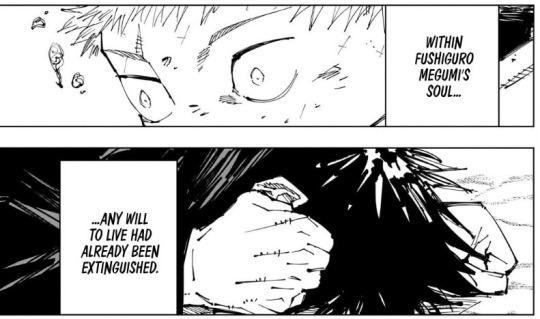
"Being a child is not a sin." (Nanami Kento, Jujutsu Kaisen)
With the release of Chapter 251, I've seen many horrible takes from dudebros saying that Megumi has "sold" the team. This makes me unreasonably angry because of course it does, so obviously my next plan of action is to take all of my hour-long rants about the mental health of JJK characters and put it here, where said dudebros will never see my (correct) analysis in their entire life. Oh well.
One thing Gege is really, really good at is creating believable, undeniably human, and complex characters. Every character has a different set of motivations, beliefs, ideals, and especially mental states. The constant theme of Jujutsu Kiasen has been "Strength vs Weakness". While the clearest interpretation can be seen through the physical attributes of the characters (Gojo being the strongest sorcerer of his time due to his abilities, and Miwa being one of the weakest, again, due to her abilities), it is also directly applied to the mental strength of characters. No two characters are able to withstand the same trauma and come out the exact same, just as no two real people can process the same trauma. Not only is it a result of nature, as people are genetically different and therefore process information differently, but a product of nurture - in other words, character motivation and environment.
This is where we come to the current state of the manga, Chapter 251. The fated Yuuji vs Megumi debate. I keep seeing people wildly misunderstanding these two, and why it's so important that Megumi isn't standing up to fight, why he isn't able to handle his trauma, when Yuuji can.
Gege writes phenomenal characters. And I want to express just how well done they are, making Jujutsu Kaisen actually kind of deserve its popularity, because some people only care about power scaling. I'm going to touch on Megumi last, because understanding all of the other characters' makes his visible struggle that much more impactful.
1. Geto Suguru

I want to start this mental health analysis with Geto. He is the best representation of depression I've ever seen in Shonen. It doesn't take a hundred chapters to showcase a character's downfall. It doesn't take a hundred significant events to cause a character to break down. Gege shows the best, realistic mental breakdown using only a handful of chapters, and still makes it slow and painful.
Depression can start because of a big event, but it doesn't take more for it to worsen. Untreated, depression runs a vicious course that eats a person through slowly but effectively. It isn't one screaming session, hands clutched over the head and cursing God and the world. It's everything piled onto each other. It's coming to the end of that pile and realizing that nothing will ever change.
This is Geto Suguru's story. He has a big event: the fight with Toji and the failure to save Riko. But his mental health journey was fated to decline, even without the fight and failure. The root issue of his depression came from his ability: Cursed Spirit Manipulation. As long as he kept devouring the embodiment of every vile, human emotion, the more he would lose himself to that vileness. He wasn't changing anything; he couldn't help but continue to swim in negativity because that's all he could do.
Gege wasn't making a commentary on Geto's ability. He was talking about people, as they are, and how staying in a bad situation will not always make you stronger. It can, and most likely will, make you worse. A direct comparison to the sixteen-year-old Geto would be a sixteen-year-old at school, surrounded by people who bully and pick on them with harsh words. The kid will eventually consume all of that bullying, all of that negativity, into their being, because there is simply nowhere else to go. School is mandatory; they can't just leave. They eventually feel isolated, with all that vileness piled on. Even if they have friends, those people could never understand what it's like to put up with humiliation and cruelty day after day.
It's not rational to push away a support system, but who said human beings are always rational? People make mistakes. They don't make the right decisions. Geto didn't. He saw someone offer him a chance at change, a possible light at the top of his pile and twisted it to match his overwhelming negativity. He left and swore to destroy the world that made him the way he is, just as that bullied child may turn away from school and society in whatever form that may take.
I want to touch on the physical aspects of Geto's depression, too. I noted this in a previous analysis I did on him (his character is just that amazing, what can I say?), but Gege knew that the mind can't be affected alone. Geto was drawn with deep eyebags, a nod to an inability to sleep or needing to sleep all the time. Depression makes you tired all the time. Everything becomes difficult. He sits with his back hunched, resting his weight on his knees, like sitting upright is too hard. When someone speaks to him, he blinks and takes a second too long to look over or respond, like speaking takes too much energy. To me, it even looked like he was becoming thinner. It's extremely difficult to maintain a schedule of exercise and mealtimes when your mind is fighting an active war against itself.
Again, a beautiful representation of depression. Geto means a lot to me in this aspect.
2. Gojo Satoru
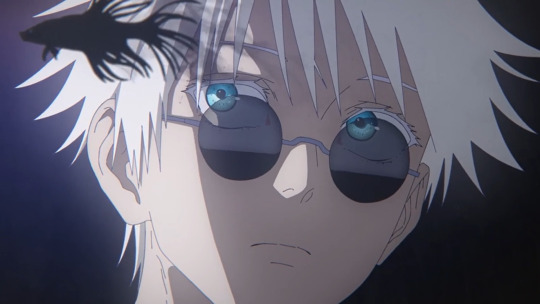
In comparison to Geto, Gojo's horrible mental health is a lot subtler. Depression isn't the correct term, but you don't have to be depressed to be sad. Sadness is his stagnant state; he has moments of bliss, goals to work towards, a reason to keep going, to continue living, to continue chasing the sun over the horizon, but he does return to the same place he is always at when the lights turn off and he's painfully reminded of this one fact: he is isolated.
All of Gojo's problems start and end with isolation. From the moment he was born, everyone knew he was different. He knew he was different. Through glimpses of his childhood and honestly reading between the lines, it's obvious he never played with kids his age. People don't just develop a superiority complex with their only drive to be better than literally everyone else for no other reason than to get better. It comes from somewhere, and in Gojo's case, it's from his young childhood. It seriously messed him up; even now, he can't shake the lesson that "Strength is the only way to success and happiness".
This is what made Geto so important. Geto was somebody who could share the burden of being the strongest. Geto was someone his age who understood him in a way Shoko could not, though they both were able to see Gojo beyond his capabilities as a Jujutsu sorcerer. Gojo then had somebody to base his moral principles on. Because he couldn't connect with anybody else, he had no basis other than strength. Geto taught him why it was important for the strong to protect the weak.
Then everything went wrong. Gojo became isolated again in his strength and lost the only person who could plausibly stand with him. "Are you the strongest because you're Gojo Satoru, or are you Gojo Satoru because you're the strongest?" Gojo was young, then, and fresh-faced into his newfound godhood. He didn't kill Geto in that moment because he wanted to deny the claim that he is nothing without his strength, that he isn't as shallow as he was raised to be.
But he knew better. He grew older, he killed his best friend, and he realized that he was nothing without his strength. He never got over Geto. In order to cope with the guilt of being unable to save him when he left, he adopted a whole kid, thinking that if he wasn't strong enough to save Geto, maybe he could save Megumi. But there it is all over again - he never broke from the cycle of strength defining his worth. Saving Megumi would define his strength, right? It would prove Geto wrong, right? He raised Megumi under the same logic (that the only way to save his sister is to be strong), only ridding the boy of the crushing isolation.
In this way, Gojo isn't mentally weak. He didn't abandon society and everyone who loved him, instead choosing to hone the trauma of his isolated childhood into a weapon and teach the next generation to be better than himself. He isn't depressed, but he isn't happy. You can't be happy if you're alone all of the time. He hoped Megumi could be someone to stand by him, but in the end, he failed to save Megumi. His strength couldn't save him, just as it couldn't save Geto.
He isn't mentally strong. He isn't weak, either. He is horribly, painfully average. He's not weak enough to be saved, but not strong enough to save others. His childhood plagues him, but not to the point where it prevents him from living. He killed Geto but was unable to bury the body. Gojo is everything he never wanted to be.
As it turns out, strength can't buy you happiness. Gojo may have understood that, but he couldn't abandon it, even to the bitter end. Just as a human struggles to shed their conditioning. Not everyone can break the cycle, but we are always trying our best to work with what we've been dealt.
3. Okkotsu Yuuta

I'm putting Yuuta in between Gojo & Geto and Itadori & Megumi because he is, in a way, a bridge between the two. Geto and Gojo have lived their lives; their stories are complete and ended in tragedy. Itadori and Megumi's are not. They are still actively struggling and fighting their physical and mental battles; their stories have yet to be completed.
Yuuta's story isn't technically completed (ignoring everything that happened in the recent chapter with him for the sake of MY mental health), he is still a success story. He is the average protagonist who started from the bottom and ended up at the top. Only he, as Gege has done time and time again, has a slightly stronger focus on mental health than most other Shonen. He is success where Gojo & Geto failed, and the success that Itadori & Megumi are narratively striving for.
At the beginning, Yuuta was depressed and suicidal. He was bullied at school and involuntarily hurting others. Instead of becoming resentful of the world, he pushed all of the vileness inward. His guilt caused him to try to take his life, presumably multiple times, but Rika stopped him before he could succeed. His life was effectively out of his hands; he felt powerless with all of the bodies stacking around him, and he couldn't atone for "his" actions.
His mental health, as it was, was in shambles. Gojo then offered him a way forward. Yuuta's mental health did not improve overnight. It was when he made friends at Jujutsu High, and developed a support system, that he was able to relieve his anxiety and realize that life is not so bad after all. That all of this pain and suffering and loss - it will pass.
The most important thing to acknowledge when it comes to Yuuta is the sheer fact that he was not alone, nor did he allow himself to be alone. Unlike Gojo, who still had Shoko and Nanami after Geto left but refused to connect with them, Yuuta allowed himself to get close to those around him. They didn't know the suffering he'd undergone for so many years. They didn't know what it was like to be him, but that was okay. He knew that they had empathy, that even though they could never experience his life, they could still be there for him now when he falls.
When given the opportunity to surrender, Yuuta stands in the face of one Geto Suguru and swears to protect his friends and fight with Rika. He's so far removed from the boy who tried to kill himself at the beginning of the manga, and that's because he let himself be changed. He did not succumb. He had friends, he knew. People that would miss him if he left, and people whom he would regret leaving.
This stays consistent with his character. He doesn't let himself become isolated in his strength or his experiences. He's much stronger than everyone else in the room, he's a special grade and he knows that, but he still treats everyone like they are equals. Like they are his friends, like they are people who could share this burden of existence with him. This is something that Gojo couldn't accomplish, which lends to the fact that Gojo had a very off-hand teaching method when it came to mentoring Yuuta. Instead of influencing him under this idea of strength conquers all, he let Yuuta develop far away from the ideals of the Japanese Jujutsu Society.
And, in the end, the fact of him being physically strong - a special-grade sorcerer from the get-go - never helped him in his mental health. In fact, it made him miserable until he learned to get a handle on Rika. His winning or losing that fight with Geto wasn't the point of his character, it was reckoning with the fact that he is okay now. That he can embrace the ugly part of him with dignity instead of guilt.
4. Itadori Yuuji
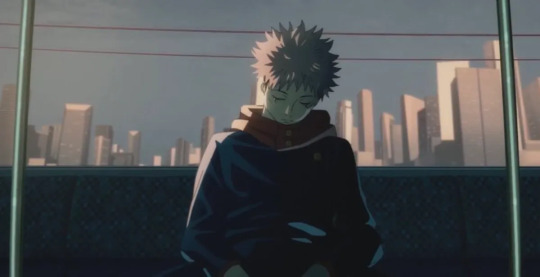
Itadori's entire character is that he has an unbreakable spirit. As the only one who can bear the soul of Sukuna, he started off like Yuuta, only on the opposite end of the mental health spectrum. When we first see him, he's happy, spending his afternoons with the Occult Club and watching movies.
... What happened?
Like Geto, everything piled on very slowly. So slow that I'm not even sure he felt the true effects of everything he experienced up until the fall of Shibuya. It starts with the death of grandfather, whose parting words "Just save as many people as you can" haunt him even now during the final fight with Sukuna. He was never given time to properly grieve his grandfather, just as he never had time to grieve the brother curses, Junpei, Nanami, Nobara, Gojo, Higurama. At the end of it all, when the fighting is over, I have to wonder what will become of the boy that realizes he's lost most of the people he loved.
The one time he did try to process it, when he realized that he couldn't control Sukuna, was when he broke down in Shibuya. Sukuna leveled an entire city. For the boy who never wanted to kill another human being for fear of devaluing life, the weight of his weakness killing thousands was crushing. Then Nanami died. Nobara died (still hanging onto that unknown status but I digress). Both are right in front of him, and powerless to prevent Mahito from disintegrating their bodies. So, obviously, Itadori broke down. The boy with the unshakeable spirit, the only person who could contain the King of Curses, has his psyche completely shattered.
He laid on the ground, and he wouldn't have gotten back up if there wasn't somebody to help him, to be there with him. Todo pulled him back together, stitched back up the broken into somebody who has allies and people to fight for. Itadori has the success that Yuuta had, only Itadori did not come out of it with better mental health.
After the breakdown, his unshakeable spirit was nothing more than the will to keep fighting. He cares little for himself, and he tries to distance himself from people to prevent them from dying from his cursed hands. He is jumping, quickly, down the same rabbit hole that Geto fell down. One big event, and they realize just how tall the pile already is, and that it will never stop growing. Unlike Geto, however, he continues to get overbearing support from those around him. Against his will. He can't push them away, for they refuse to leave his side. Yuuta, Choso, Megumi, even Higurama. They won't let him fall. This makes him better off than someone alone, in a sense. He can withstand his trauma when others may not.
Even so, even so, there is only so much support, the lack of self-isolation, can do when the traumas keep actively repeating. When he says that he will gladly die to defeat Sukuna, it is not said with the same tone that another Shonen protagonist would say it. Take Naruto for example. If he were to go into a battle to protect, say, Sasuke, he would scream, "I'll die to protect him." We understand that his willpower is stronger than his self-preservation, but we don't get the idea that he actively wants to die. He'll die if he has to. Now, Itadori says the same thing, but about saving Megumi. He says, "I'll gladly die." There is something different. His willpower is leaps and bounds stronger than his self-preservation, but that's not only it. There is an undercurrent of severe suicidal ideation prevalent in Itadori's tone. It's not that he will die to win, it's that a part of him wants for this to be his final fight. For it all to be over. To save Megumi, then atone for the sin of being too weak to save Shibuya, or being unable to stop the Culling Games, or letting Megumi get hurt when all he wanted was to keep him safe.
I'd call it more along the lines of passive suicidal ideation. He doesn't plan to kill himself, but what would it mean for him to go into dangerous situations without protection? What would it mean for him to succumb to his wounds after he wakes Megumi's soul and kills Sukuna? To not even try to seek medical attention? He's guilty. He believes everything that happened in Shibuya and after is his fault. When faced with the executioner's sword, he was ready to die for his sins, if not for the goal of ending the Games. There is a fine line between willing to die for those you love versus wanting to die for those you love.
Right now, Itadori is fighting to save one person, like his grandfather said. He is not fighting to survive. And that's what people fail to understand about Itadori when they compare him to the other members of the cast. These power-scaling dudebros don't understand that their favorite OP main character has fallen apart at the seams, that his unshakeable spirit to save people doesn't include himself.
5. Fushiguro Megumi
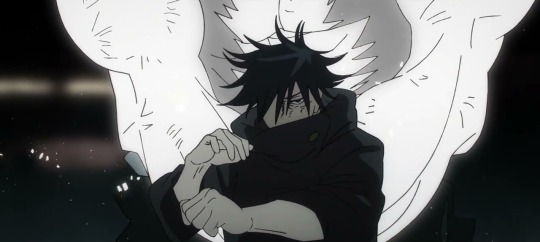
Here we finally come to the question: Why can Itadori take it when Megumi can't? There is a very similar quote that you probably think of whenever you hear this question asked. It's from The Outsiders: "Dally is tougher than I am. Why can I take it when Dally can't?" The answer to this question that Ponyboy gives is the same we can attribute to Megumi. "And then I knew. Johnny was the only thing Dally loved. And now Johnny was gone."
The entire reason Megumi became a Jujutsu sorcerer was to protect his sister. When he was five years old and probably too young to understand most of the words Gojo said, he accepted the offer of training to become a sorcerer in exchange for Tsumiki's happiness. Every day, he fought to protect her. He only had one goal in entering the Culling Games: to prevent Tsumiki from having to participate.
It's easy to attribute Megumi's constant attempts at summoning Mahoraga to a lack of will to live - suicidal ideation, the same that Itadori now experiences. On one hand, I do understand that he has a fundamental lack of care for his own life, but on the other, I don't think that he intends to throw it all away every single time. He just didn't know any better. Ignorance can lead to death as easily as intentionally seeking it out. That's why he changes his habit after Gojo gives him a lesson in risking death versus dying to win; Megumi still has someone to live for, after all.
Megumi's mental health was already rocky from the start. Not that it was in shambles like Yuuta, but he wasn't fully stable. Like a lot of teenagers, he's moody, somewhat reclusive, and only really likes one or two people maximum. Teenagers aren't known for their sunshine mental health anyway.
Megumi was given time to grieve Itadori after he first died. This trauma of losing him in front of his eyes stuck with him, but he was allowed a grace period of two months to grieve with Nobara. He experienced Shibuya, too, but he still had that one important person to protect. His mental health was alright at this point, all things considered. As long as his sister was alive, he would be fine.
Sukuna knew this. So Sukuna killed Tsumiki using only the Ten Shadows Teqchnique. The one person Megumi spent his whole life dedicated to, was killed by his own cursed technique, his own failure to suppress Sukuna.
In the void of his soul, Megumi was alone. Truly, utterly alone. The only person nearby was Sukuna, the murderer of his sister, the murderer of thousands upon thousands of people. He drowned in the ceremonial bath of crushed curses to hold his soul down in the depths of despair, literally drenched in all of the vileness the world has to offer. Sukuna killed Gojo using Mahoraga's adaption ability, and before that, Megumi was forced to take several of Gojo's mind-altering domain expansions.
Already, he had given up. He gave up when his sister died, but the rest ground a pointed spur into his neck. When Itadori shakes his soul, Megumi is repeating, "That's enough." He was at the end of his rope a long time ago. What more is there to keep living for? He doesn't want to live with the blood of his sister, the blood of the man who practically raised him, and the blood of countless others drenching his hands.
Sukuna killed all of these people, not Megumi. But then, Sukuna killed of those people in Shibuya, not Itadori. Why can Itadori take it? Why can he keep fighting when Megumi lays broken on the ground? Itadori wasn't alone. And Megumi has never been known for his unshakeable spirit. That is the one thing that Itadori can hold over everybody else, the one trait that everyone admires. He was born to shoulder the burden of the world. Megumi wasn't. Megumi wants to die. He is not passively suicidal, for he has no goals left to complete, a plan to die within the body no longer inhabited alone. He is suicidal. He would drive a stake through his heart if it meant relieving his pain. He doesn't want to do it anymore. He's had enough.
And Itadori was in this position once, too? Perhaps not as directly, but he was there. Here is the moment that the protagonist gives the motivating speech to will someone to keep fighting, that life is worth living. I realized today that this is not something Itadori has done yet. He hasn't had a grand speech that's not been about his own willpower. He's never encouraged someone else to keep living in the way that you would expect from the main character. This is his moment, I suppose. He needs to be the person for Megumi that Todo was for him. He has to show Megumi that he isn't alone.
He needs to save Megumi when, all those years ago, Gojo couldn't save Geto.
I don't think some of this fanbase understands how horrible Gege has to be at writing if he just. Let Megumi get up to fight in Chapter 251. All this time, he has shown how Megumi has been defeated. He showed him crumbled on the ground, unmoving. It shouldn't be a surprise that all of the measures Sukuna took to ensnare Megumi's soul worked. Megumi is suicidal after the people he loves have all died because of his technique. God forbid a sixteen-year-old is unable to cope with his trauma alone.
Honorable Mentions:
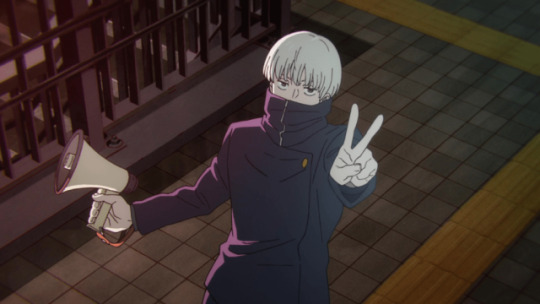
There are a lot more characters in this story that represent/show mental illness that I didn't go into depth on but are worth mentioning. It was easier to only talk about the major characters since we spend so much time with them and I can fully flesh out everything that should/can be said about them. Anyway, here are a few more that are notably well-written in their mental struggles:
Yoshino Junpei. His story arc follows very similarly to Geto, except he is the bullied student I was making a reference to. Depressed, alone with a mother whose habits he can't stand, he turned to someone he thought could provide him a better life. Interestingly, he is a good representation of the type of children that tend to be groomed. That's surely what happened to him. Mahito used him, then discarded him for his own gains.
Ieiri Shoko. Her main struggle can be seen through her smoking habits. She's been through a lot, lost so many people, and has to keep healing sorcerers only for them to die. Eventually, she was able to come to terms with this. She kicked her smoking habit at the same time she kicked the vicious mental cycle of caring too much about the patient on her table. It's no wonder she picked up a cigarette, for the first time in a while, when Geto led the phantom parade.
Zenin Maki. She works as a very good contrast to Megumi. They both lost their sisters, the people they loved the most, but she turned all of her grief to killing the Zenin clan and gaining Heavenly Restriction. But this, this is because she could do so. There is simply nothing Megumi can do as a soul trapped in his own body. Her grief made her stronger, while for most, it made them weaker.
Inumaki Toge. He isn't seen a lot, but his story is ultimately quite compelling. A boy who hurt many when he was young. He turned his guilt into kindness, a will to protect. He tends a garden to raise plants healthily, for God's sake. He's one of the examples that shows Yuuta that your past actions don't define you, but instead, what you choose to do going forward.
I am not proofreading any of this before I post it. Sorry if it is borderline unreadable with spelling / grammatical errors.
#jjk#jujutsu kaisen#jujutsu kaisen rant#jjk gojo#jjk geto#jjk yuuta#jjk itadori#jjk yuuji#jjk megumi#jjk fushiguro#jjk satoru#jjk suguru#jjk okkotsu#itafushi undertones i won't lie#but it's not about them sigh#friends or not everything still applies#jjk analysis#jujutsu kaisen analysis#jjk character analysis#jujutsu kaisen character analysis#jjk 251#jjk chapter 251#jujutsu kaisen 251
226 notes
·
View notes